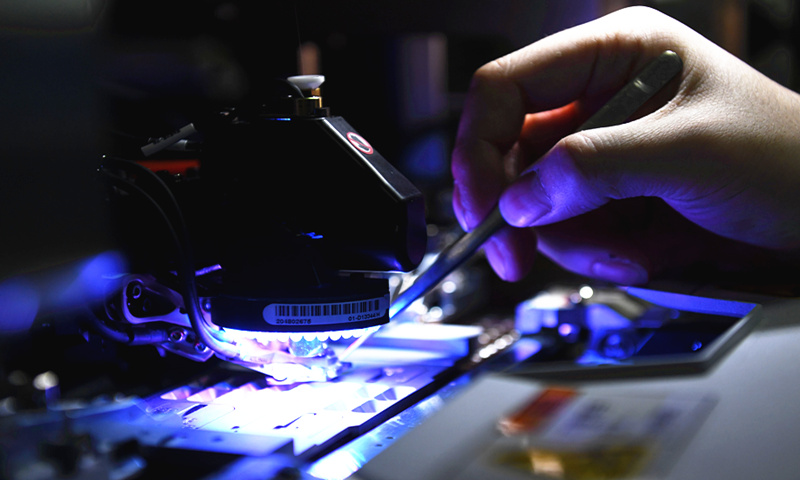Russia’s export restriction of noble gases will aggravate global semiconductor supply bottleneck: analysts

Workers make chips at Anhui Dongke Semiconductor Co in East China's Anhui Province on Saturday. The company is located in the Anhui Ma'anshan Economic and Technological Development Zone, and it is mainly engaged in the design, production and sales of green power chips. Photo: VCG
The Russian government has reportedly restricted the export of noble gases including neon, a major ingredient used for manufacturing semiconductor chips. Analysts noted that such move may impact the global supply chain of chips, and aggravate market supply bottleneck.
The restriction is a response to the fifth round of sanctions imposed by the EU in April, RT reported on June 2, citing a government decree stating that the export of noble and others through December 31 in 2022 will be subject to Moscow approval based on the recommendation of the Ministry of Industry and Trade.
RT reported that noble gases such as neon, argon, xenon, and others are crucial for semiconductor manufacturing. Russia supplies up to 30 percent of the neon consumed globally, RT reported, citing the newspaper Izvestia.
According to a China Securities research report, the restrictions will possibly exacerbate the supply shortage of chips in the global market and further increase prices. The impact of the ongoing Russia-Ukraine conflict on the semiconductor supply chain is growing with the upstream raw material segment bearing the brunt.
As China is the world's largest chip consumer and highly dependent on imported chips, the restriction might affect the country's domestic semiconductor manufacturing, Xiang Ligang, director-general of the Beijing-based Information Consumption Alliance, told the Global Times on Monday.
Xiang said that China imported around $300 billion worth of chips in 2021, used for producing cars, smartphones, computers, televisions and other smart devices.
The China Securities report said that neon, helium and other noble gases are indispensable raw materials for semiconductor manufacturing. For instance, neon plays a vital role in the refinement and stability of the engraved circuit and chip making process.
Previously, Ukrainian suppliers Ingas and Cryoin, which supply about 50 percent of the world's neon gas for semiconductor uses, stopped production due to the Russia-Ukraine conflict, and the global price of neon and xenon gas has kept going up.
As for the exact impact on Chinese enterprises and industries, Xiang added it will depend on the detailed implementation process of specific chips. Sectors which highly rely on imported chips may be affected more significantly, whereas the impact will be less noticeable on industries adopting chips that can be produced by Chinese companies such as SMIC.
Global Times

